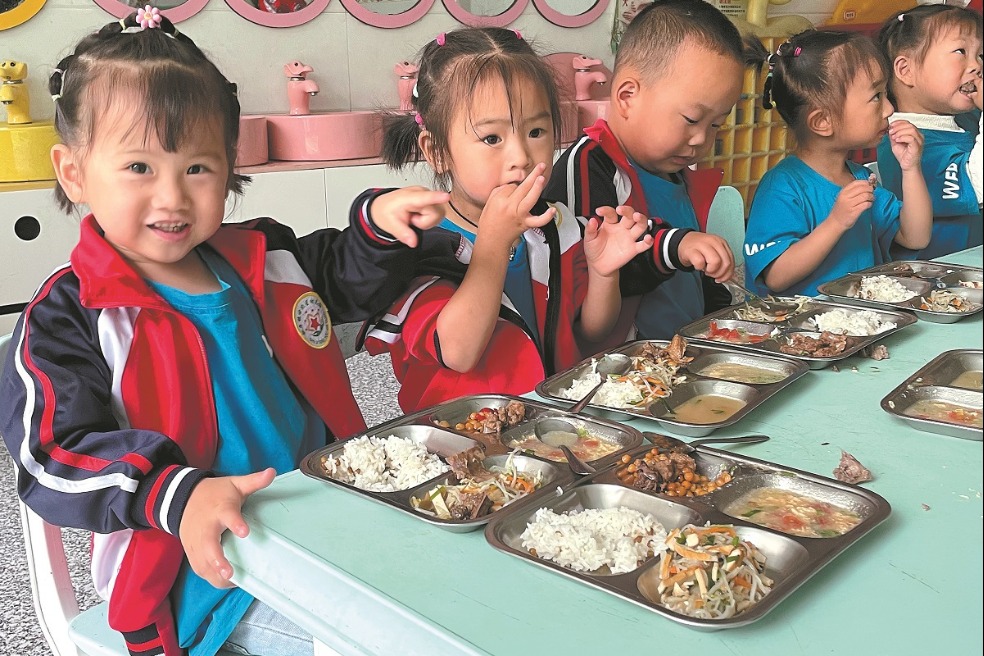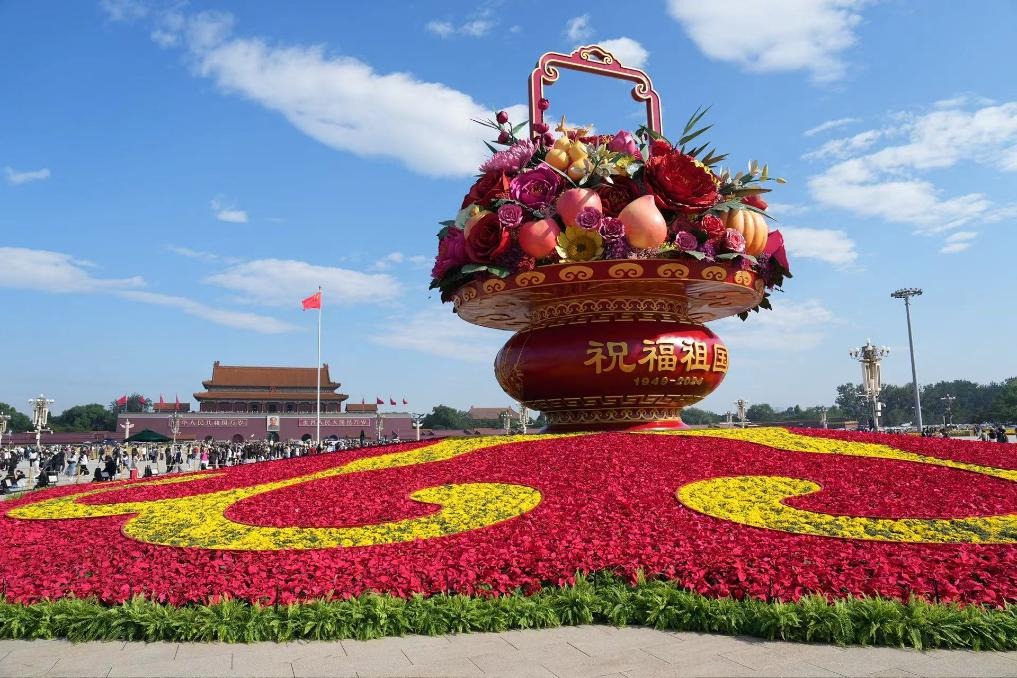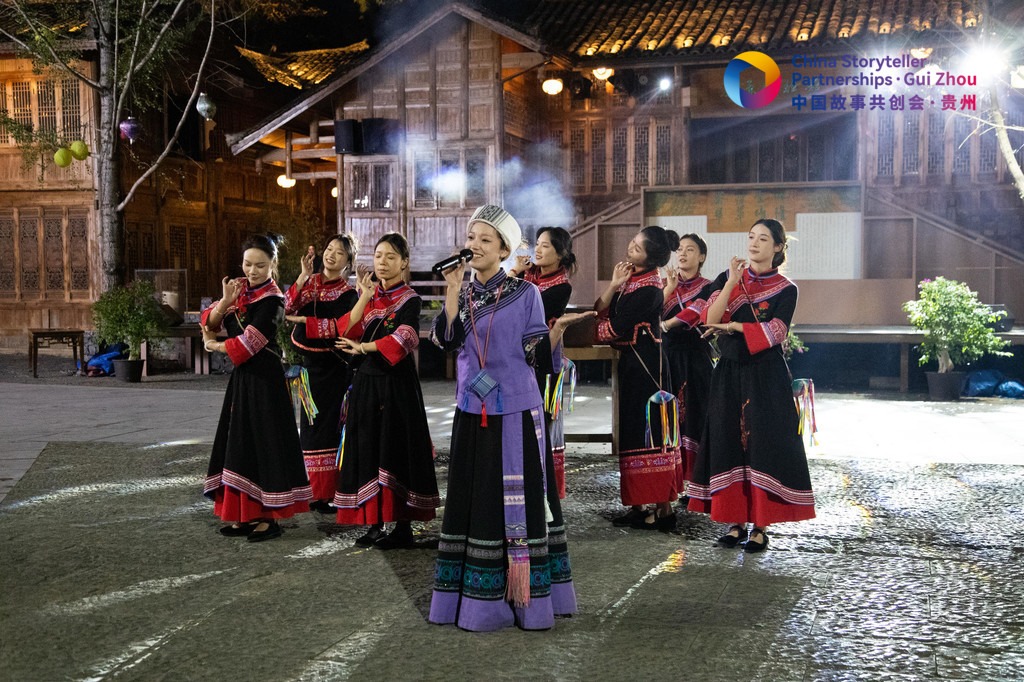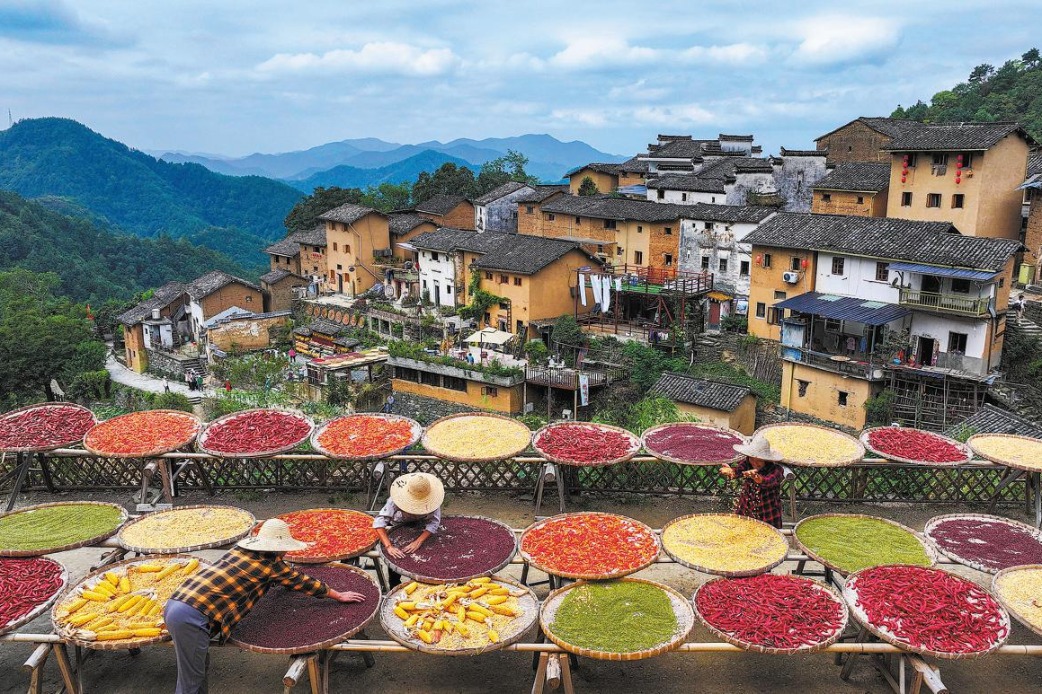Journey to self-sufficiency globally significant


As we commemorate the 75th anniversary of the founding of the People's Republic of China, we savor the moment to reflect on the nation's remarkable agricultural transformation over time. From being a country that grappled with food insecurity and rural poverty, today China has successfully secured food for over 1.4 billion people — nearly 18 percent of the world's population — while utilizing just 7 percent of the world's arable land.
China's rural areas are home to 36.11 percent of its population. Rural areas in developing countries — where hunger and extreme poverty are most concentrated — also hold the greatest potential for food production. It has been proven that investing in these areas drive economic growth and create jobs. China's journey from severe food deficiency to becoming the largest food producer, offers valuable lessons for global food and nutrition security efforts. This is especially so at a time when the world faces mounting challenges that impact food security such as conflict, climate variabilities, economic downturns and resource scarcity.
Since 1980, the International Fund for Agricultural Development has been a steadfast partner in China's rural development journey. Through 35 projects in some of the harshest and very remote rural areas, IFAD has supported over 20 million rural women and men, improving their livelihoods. This partnership has been pivotal in supporting China's extraordinary efforts to eliminate extreme poverty and enhance national and global food and nutrition security.
Forty years ago, more than 90 percent of China's rural population lived in absolute poverty. In its early partnership with China, IFAD focused on addressing immediate challenges of the country. The goal was straightforward: to help farmers grow more food — crop, livestock and fisheries. Through financial aid and technical support, IFAD worked with China to enhance grain, animal and fisheries production, modernize farming techniques, and promote food security.
As China transitioned to a market-oriented economy at the end of the 20th century, IFAD's focus expanded beyond just food production to innovative technologies, as well as enhancing smallholders, particularly women and ethnic minorities' access to finance and improving their linkage to markets. This strategic shift empowered rural women and marginalized communities by providing them with essential skills and integrating their voices into decision-making processes. Additionally, IFAD promoted the adoption of modern agricultural technologies, which contributed to more efficient farming practices and increased participation in the market economy.
When China declared in 2012, its goal to eradicate extreme poverty by lifting the last 98.99 million people out of extreme poverty by 2020, IFAD's partnership strategy shifted toward a more holistic approach. The new direction aligned with China's broader vision for agriculture and food security, incorporating rural revitalization, green and inclusive development, and digital transformation, all aimed at ensuring no one is left behind. As part of its contribution, IFAD is supporting China in implementing farmland enhancement in remote areas to improve the quality, productivity, and sustainability of agricultural land in Sichuan province and Ningxia Hui autonomous region. In Yunnan province, IFAD has funded women and ethnic minority entrepreneurs like Ms Zou Jie from Huaping county, whose company created 15,000 job opportunities and significantly boosted the local economy. In Hunan province, IFAD built village irrigation infrastructure and is promoting the use of organic fertilizer, so that the cooperatives supported will be resilient and still cultivate the land whenever rain is scarce. Additionally, IFAD projects are also creating employment opportunities for the youth so they will remain in or return to rural areas.
China's transformation has not only benefited its own rural communities but has positioned the country as a leader in global food security initiatives. According to the latest State of Food Security and Nutrition in the World report 2024, jointly published by IFAD, FAO, WFP, UNICEF and WHO in July, an estimated 28.9 percent of the global population in 2023 was moderately or severely food insecure. Through South-South and Triangular Cooperation, China and IFAD have shared agricultural knowledge, innovation and technologies with other developing nations, safeguarding the food security and livelihoods of local farmers. China's $10 million contribution to establish the China-IFAD SSTC Facility in 2018, along with another $10 million replenishment in June 2024, has made the facility pivotal for knowledge and expertise exchange and technology transfer within the Global South.
Despite these notable achievements, some challenges exist. As China continues its journey, it is essential to ensure that all citizens have access to nutritious food in addition to enhancing food production. The future of China's food security will hinge on integrating sustainable agricultural practices that promote environmental stewardship and public health. This includes efforts to reduce food loss and waste, improve the food systems, and enhance the overall nutritional quality of food, while ensuring that progress in food production translates into improved health and well-being for all.
Overall, China's journey is a testament to what can be achieved through careful and systematic planning, innovation, policy reform, and international cooperation. The country has demonstrated its prolificacy through the evolutions in the poverty and food security landscapes. This noteworthy evolution has significantly contributed to global food security, stabilizing food markets, and providing lessons in resilience and growth. China's success is not a fluke — it's a product of meticulous planning, investment, and commitment of its leadership. It demonstrates how targeted strategies and collaborative efforts can drive substantial improvements in agricultural productivity and rural development.
As China transitions into a carbon-neutral economy, IFAD will continue its strong partnership to support China to sustain and expand the gains in poverty alleviation and comprehensively realize rural revitalization. This would be done through supporting innovative and resilient rural livelihood practices, greening the agricultural sector through environmentally and climate-smart interventions, and sharing the knowledge generated through our activities and those of others in-country with other developing countries through South-South and triangular cooperation.
The author is IFAD's representative in China and head of Asia and the Pacific Regional Centre for South-South and Triangular Cooperation. The views don't necessarily reflect those of China Daily.
If you have a specific expertise, or would like to share your thought about our stories, then send us your writings at opinion@chinadaily.com.cn, and comment@chinadaily.com.cn.


































